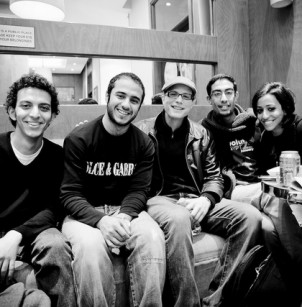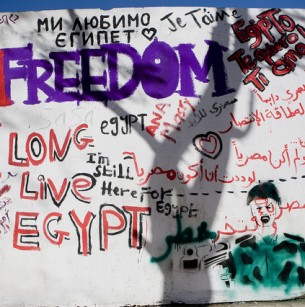|
Tunisia | Libya | Egypt | Africa Politics | Technology How cyber-activism lent savvy to North African protests
As hundreds of thousands of Egyptians in Cairo's Tahrir Square celebrated the resignation of President Hosni Mubarak on 11 February, some held up mobile phones to snap photos of the crowd, others sent Twitter messages to their friends and a few wielded signs proclaiming, "Thank you, Facebook."
In both countries, labour strikes erupted in 2008. Students and other youths wrote blogs, set up Facebook pages and generally sought to drum up support for the strikes. Gradually, these online organisers took up other issues - especially human rights abuses - and formed a variety of groups. They shared tips and experiences across their borders. In December 2010, a young but jobless university graduate in a small Tunisian town set himself on fire. His desperate act quickly set off street protests. Videos of the actions were shared across the Internet and were broadcast by the satellite TV network 'Al-Jazeera'. The protests grew ever larger, until they forced President Zine el-Abidine Ben Ali to flee the country on 14 January. Inspired, Egyptian activists called protests against their own government on 25 January. They put out the word on the Internet, but also began their marches through poor neighbourhoods of Cairo, drawing in thousands. As images and texts spread online, the protests mushroomed across the country. They continued even when the authorities shut down the Internet for five days. "I liked to call this the Facebook revolution," Wael Ghonim, a young marketing executive for Google who had played a key role in initiating the protests, told the huge crowd in Tahrir Square. "But after seeing the people here, I would now say that this is the revolution of the Egyptian people." Mr Ghonim and his colleagues insist they played only small parts in a drama unfolding on a grand scale. But those roles proved pivotal. They showed that young people armed with little more than laptops and mobile phones can help amplify popular voices for freedom and justice. By Ernest Harsch and afrol News staff © afrol News / Africa Renewal - Create an e-mail alert for Tunisia news - Create an e-mail alert for Libya news - Create an e-mail alert for Egypt news - Create an e-mail alert for Africa news - Create an e-mail alert for Politics news - Create an e-mail alert for Technology news
On the Afrol News front page now
|
front page
| news
| countries
| archive
| currencies
| news alerts login
| about afrol News
| contact
| advertise
| español
©
afrol News.
Reproducing or buying afrol News' articles.
You can contact us at mail@afrol.com









